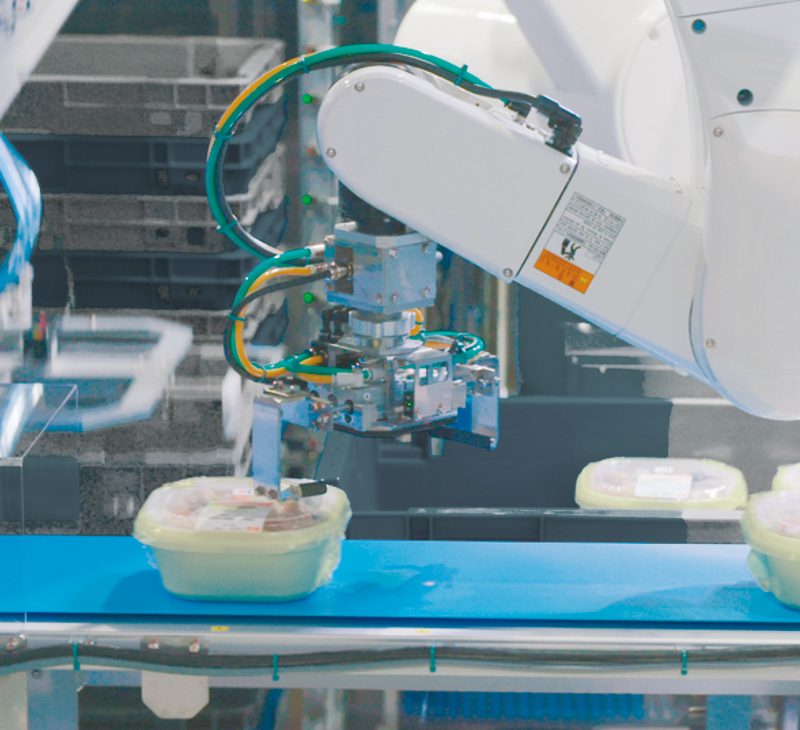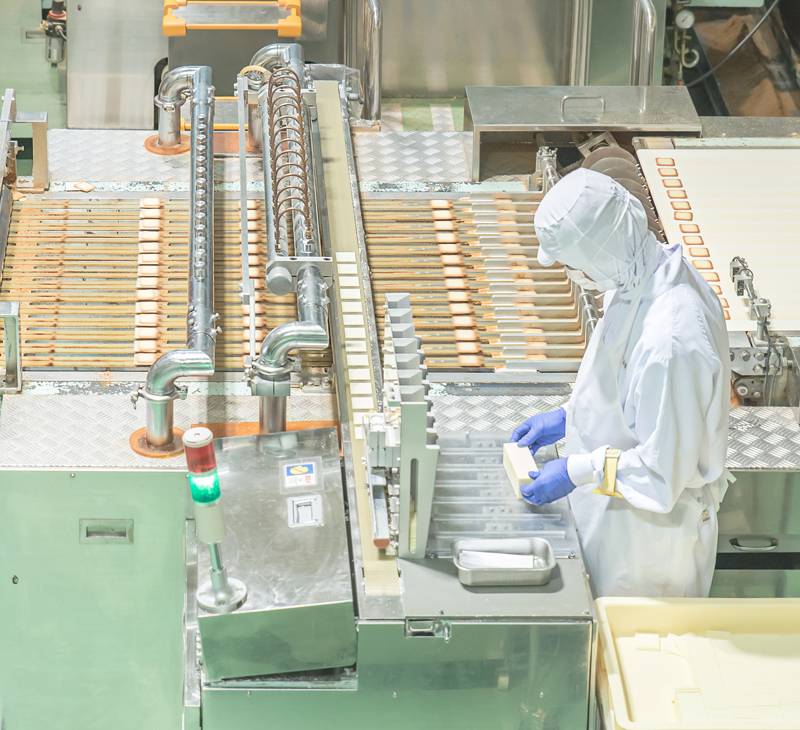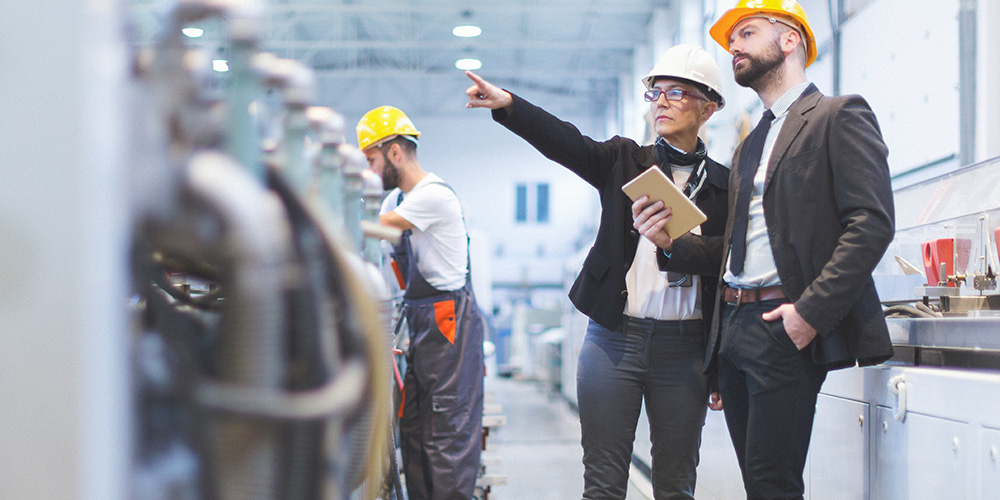Food Factory SystemFood Factory System
Drastic changes to the awareness and lifestyles of consumers from COVID-XNUMX and
food manufacturing in the convenience store industry, where product strategy itself is at a turning point

-
The convenience store industry is undergoing a major transformation. The issues it faces are "food waste loss," "reducing plastic usage," and "labor shortages." These issues are becoming even more serious due to changes in the consciousness and lifestyles of consumers due to COVID-XNUMX. Vendors responsible for providing food to convenience stores are undergoing major changes in their manufacturing content due to the ever-increasing demand to solve problems.
The biggest of these is the shift from room temperature lunches and other items to chilled and frozen ones. For example, chilled lunches have sell-by dates 2 to 3 days longer than room temperature ones, so they aren’t as often thrown out, and it is possible to significantly extend the best-by date by using vacuum chilled packs for prepared foods.
Furthermore, frozen items can be kept for a long time, and since production can be centralized, waste can be significantly reduced. In addition to reducing food waste loss, the conversion from room temperature lunch boxes to chilled ones and frozen foods has made it possible to replace products twice a day when it used to be necessary three times a day. This can help solve labor shortage problems and environmental problems (such as reducing exhaust gas and CO₂) and comply with HAACP.
Taking over a solution business for the food manufacturing industry
to expand automation in the food field from specialized robots to general industrial robots

-
As the convenience store industry must undergo major changes, the demands and expectations on convenience store vendors who are responsible for providing food to convenience stores are increasing. However, even major convenience store vendors haven't made much progress in automating their food factories, and SIers like us see a lot of need there. Behind this is the reality of a shortage of engineers who can visualize the entire production line from a bird’s eye view and quickly respond to rapid global changes.
We at IDEC Factory Solutions sensed the challenges unique to this industry from our prior experience introducing collaborative robots in food manufacturing lines. In May 2021, we took over the solution business for the food manufacturing industry from Skewes Inc. Skewes has a wide range of customers and connections in the food industry, including convenience store vendors, and has accumulated know-how by providing food transport equipment and consulting on how to improve food production lines.
By combining a business that has strengths in automation solutions for the food manufacturing industry with the collaborative robot business that IDEC Factory Solutions has developed, it is possible to develop connected fronts. We have laid the groundwork for a wider range of more in-depth solutions for the food manufacturing industry.
Moving from process automation to automation support for entire manufacturing lines,
and going beyond that to support smart food factories.

-
As mentioned above, in addition to the product development methods that have been repeated until now in the convenience store industry to rouse customer interest through novelty, there is progress in chilling and freezing fresh-made foods in order to improve their freshness and suppress the growth of microorganisms, and reduce waste. In addition, containers and packaging that maintain the freshness of food are being improved daily through repeated trial and error.
Existing factories with crowded production lines cannot handle the further progress that is required, so drastic changes and initiatives from various companies are needed, such as introducing new production equipment, vendors constructing new factories, using foods in new ways, and introducing new materials for containers. Until now, we at IDEC Factory Solutions have promoted the automation of specific processes using collaborative robots, but in response to the dynamic changes in the convenience store industry, we have begun to work on automation support for the entire manufacturing line in collaboration with convenience store vendors.
In fact, the demand for design and consulting regarding production lines themselves is increasing rapidly. Furthermore, in the future, we aim to support the smartification of entire factories based on the achievements and knowledge we cultivate in collaboration with convenience vendors by utilizing the technologies, products, and human resources possessed by the entire IDEC Group,




